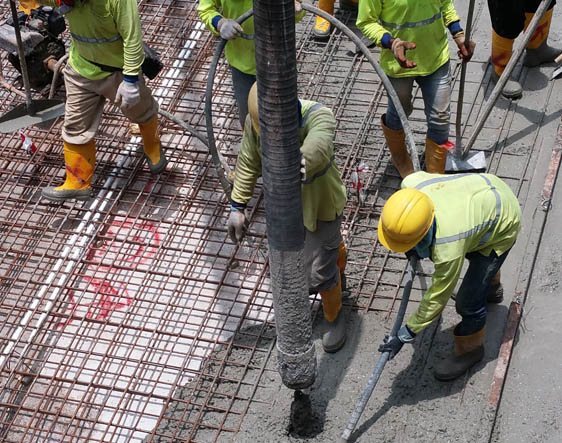HR and health and safety have a common denominator in that they are both concerned with people. The two functions go hand in hand. Nigel Clamp is Health and Safety Director for Africa and the Eastern Mediterranean Basin – HeidelbergCement.
“Businesses that have teams operating in silos – where departments such as HR, health and safety and purchasing don’t engage, and where people spend much of their time in their own departments – are never going to be as successful as organisations in which functions work together.”
Nigel Clamp is Health and Safety Director for Africa and the Eastern Mediterranean Basin at construction materials giant HeidelbergCement. He is a strong proponent of close, cooperative working – particularly within multinational companies, where improving safety performance relies on reaching standards that are often exceptional in a local context. The inter-reliance of different business areas means that HR and health and safety must work “hand in hand”.
“If I’m doing my job right, I can have a positive effect on absence and retention rates by reducing injuries and through measures such as proactive health monitoring,” Nigel points out. “And I can help the purchasing and finance functions by renegotiating our PPE contracts so that we have one supplier and leverage higher-quality products while reducing costs.”
Nigel, a geologist by trade, has worked in quarrying for most of his career– starting on the operational side before moving into health, safety and the environment in 2001. His current role oversees health and safety in Turkey, Israel, Egypt, and throughout Africa – including Morocco, Sierra Leone, Ghana, Liberia, the Democratic Republic of Congo, Tanzania and Mozambique.
Nigel specialises in senior leadership engagement and culture change. It’s in this area that he collaborates most with HR colleagues. “In Africa, the foremost challenge is to get senior managers motivated to take safety seriously in an environment where the local competition operates to lower standards. We make sure health and safety is written into employment contracts and bonus schemes, and job descriptions make it clear that ‘safety is everyone’s responsibility’”.
“I think that it is crucial for all senior managers to be trained. With this in mind, we put each of them through the NEBOSH General Certificate in Occupational Health and Safety. It is the best known internationally recognised qualification giving our H&S teams the knowledge and skills to raise standards. It’s also a requirement for our safety managers to complete the NEBOSH Certificate as a base minimum qualification to help them develop their own competence.”
As well as NEBOSH qualifications, I am a big advocate for specific training on a DuPont technique called ‘Visible Felt Leadership’. “Anyone can write a policy, or devise some sustainability targets, but safety is really felt when senior managers go back to the floor and engage positively,” Nigel argues, “so I like to have all of my managers effectively engaging with their teams.”
This engagement has two main aims: firstly, to identify unsafe behaviours; and secondly, to reward good behaviours. “It’s a really powerful way to support the culture of a business.”
Raising safety standards on a global scale is a huge challenge. In the UK, basic legal compliance brings a certain level of worker protection; and the legal framework gives safety managers the ability to assert that there are certain things that must be done ‘because it is the law’. But Nigel’s experience in Africa shows that there is no legal threat to strengthen the safety manager’s hand: “The laws don’t yet exist, and the culture doesn’t yet exist; and even where there are laws, there’s little effective enforcement.”
Multinational companies adhering to UK compliance and data protection laws must compete with smaller, local, privately owned firms that are not required to comply with any regulations. “If we went in expecting our standards to be met straightaway, we’d face bankruptcy,” says Nigel. “So as a business it is important to raise standards one step at a time. Once we reach our standards, our sites become like the metaphorical oasis in the middle of the desert; modern and well maintained.”
Operating globally means taking account of local laws and cultural norms, and here Nigel works closely with HR colleagues. In certain countries it is difficult or impossible to introduce drug and alcohol testing, for example: in some instances it is illegal and in others there are religious sensitivities.
“Something that is a simple process in Europe can be considerably more difficult in Africa. Even a job title change can be challenging, because in Africa titles are more personal to the individual: people are often very proud to be working for an international company.”
Nigel’s mantra is that “safe operations are efficient operations”. And the key to efficiency? “Co-operating and engaging with all the different companion functions at board level so that people understand what you’re trying to achieve. That takes negotiation and skill.”







